






Pakistan s short-term inflation, measured by the Sensitive Price Index (SPI), recorded a 0 65% decline this week compared to the previous week while it increased by 1 9% compared to the same period last year according to data released by the Pakistan Bureau of Statistics (PBS) on Friday Of the 51 essential items monitored, prices of 18 items (35 29%) rose, 10 items (19 61%) decreased and 23 items (45 10%) remained unchanged during the week Key items with price increases included Pulse Moong (2 56%), Cooking Oil (1 56%), Sugar (1 23%), Chicken (0 80%), and Vegetable Ghee (0 61% for 1 kg and 0 49% for 2 5 kg) Other increases were noted in Bread (0 57%) Washing Soap (0 43%) Garlic (0 39%) and Firewood (0 12%)
ductions were observed in Tomatoes
(NERA) a US-based
consultancy firm hired by the government to oversee the spectrum auction, flagged these issues in its assessment NERA emphasized the need for clarity on the number of Cellular Mobile Operators (CMOs) in light of the proposed Telenor-PTCL merger and recommended an expedited decision Currently, only 54 MHz in the 2 6 GHz band is available, while the remaining 140 MHz is tied up in legal disputes Experts warn that this limited availability may not meet the requirements of a single operator undermining the potential to enhance broadband services nationwide The Pakistan Telecommunication Authority (PTA) engaged NERA on November 5, 2024, to provide recommendations for releasing spectrum to improve next-genera-
tion mobile broadband services NERA is expected to complete its report within 60 working days However, delays in resolving the merger and spectrum litigation could hinder its ability to deliver actionable recommendations Once the CCP reaches a decision on the merger, the matter must pass through regulatory approvals, including the PTA, Securities and Exchange Commission of Pakistan (SECP), and State Bank of Pakistan (SBP) This process could take one to two months further compressing the timeline for the 5G auction The government had initially planned to auction the 5G spectrum by March 2023, but unresolved issues have continued to push back the timeline Without swift resolutions experts caution that the April 2025





Power Minister ’s disclosures shows the government sees light at end of tunnel
PO W E R Minister Awais Leghari has told the National Assembly Standing Committee on Energy in Islamabad on Wednesdy that the government may reduce tariffs by upto Rs 12 per unit from the current high (for domestic consumers over 700 units) of Rs 65 per unit This is the result of the process that started with renegotiating tariff agreements with Independent Power Producers He also disclosed that the government had already cancelled projects for 10 000 MW of electricity, ands would cancel those of a further 17,000 MW, if they did not revise their tariff agreements This implied that they would not be allowed the charge capacity payments whereby they received capacity payments for production even if they did not generate a single unit, with fuel costs separately Instead the IPPs are being made to switch to a ‘produce and pay’model
Though there had been much activity, spearheaded by Mr Leghari, of the task force set up by the Prime Minister with the IPPs in which they had been subjected to close examination going back to the time they had been set up, tariffs have not gone down much, leaving the electorate feeling shortchanged The government had even been shy of saying what sort of reduction it was looking at It has also been sphinx-like in its silence on what it will do about the corruption that has been uncovered, but that is nother story Even now, Mr Leghari explained to the committee the final reduction would be determined after the INMF signed off on the new gs tariff for the captive power plants
These CPPs, which are gas-fired, have been condemned as burdensome on the exchequer and power plants set up by industry for itself means that they will not buy from the DISCOs The government clearly wants to see what will be xctual effect on power demand before making a final decision on tariffs
Power tariffs are an important factor in solarization
The drastic reduction contemplated, though, my only act to slow its pace, not eliminate it The fall in panel prices which made their installation come within the reach of the ordinary consumer, is expected to continue Then it may be that tariffs may not be kept down if world oil prices, over which the government has no control go up However bringing down the tariff will not only benefit the domestic consumer, but also both industry and commerce, which, combined with the falling interest rate lead to greater growth and more jobs being created for the burgeoning youth bulge

Dedicated to the legac y of late Hameed Nizami Arif Nizami (Late)
Founding Editor
M A Niazi Editor Pakistan Today Babar Nizami Editor Profit
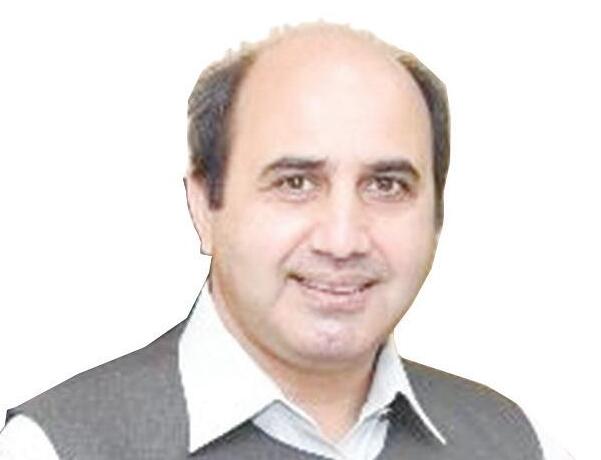
TO D AY Pakistan is hosting an International Conference in Islamabad focused on Girls Education in Muslim Communities This gathering marks a significant milestone in the ongoing journey towards empowering young girls in Muslim societies, reflecting a universal acknowledgment of education as the key to a brighter more equitable future
Yet as we advance in this endeavour it is essential to pause and contemplate the profound role that Islamic teachings play in shaping the education of girls Rooted deeply in the Quran and Hadith, these teachings not only emphasize the pursuit of knowledge but also offer a framework that champions equality justice and the empowerment of women The conference thus provides a unique opportunity for Muslim nations to illuminate the intersection of faith, gender, and education, a discourse that resonates through both the present moment and the enduring legacy of Islamic intellectual tradition In the history of Islam education of girls has always been considered a noble cause The Quran is explicit in its advocacy for knowledge irrespective of gender In Surah Al-Alaq (96:15), Allah commands Read in the name of your Lord who created Created man from a clot (of blood) Read, and your Lord is the Most Generous Who taught by the pen taught man that which he knew not Over 1400 years have passed since this revelation yet its message that knowledge is not confined to one gender continues to be relevant today It lays the foundation for intellectual empowerment, a call that extends to everyone, including girls The Quranic message goes beyond spiritual enlightenment it emphasizes intellectual growth encompassing education in both sacred and secular fields The Last Prophet Muhammad (Peace Be Upon Him) emphasized the importance of education for both men and women, stating seeking knowledge is obligatory for every Muslim (male and female)’-Sunan Ibn Majah His life reflected this with figures like his first wife Hazrat Khadijah (RA) an educated businesswoman and his daughter Hazrat Fatimah (RA) a model of piety and intellect Islam has always valued the intellectual and spiritual growth of girls The Prophet s teachings are exemplified by Hazrat Aisha (RA), who became a leading scholar in early Islamic history contributing to Hadith and Islamic jurisprudence This highlights the active recognition and nurturing of women s intellectual potential in early Islamic society
There is a marked gap between the historical teachings of Islam on girls education and the current status in many Muslim-majority coun-

THE idea of a Greater Israel, a vision of expanded Israeli territorial control stretching into neighbouring countries, has persisted as a polarizing narrative in global politics
While some proponents see it as a reflection of historical entitlement and strategic necessity the current Middle Eastern realpolitik makes this vision increasingly improbable Syria a central piece in this imagined puzzle, epitomizes the hurdles that such ambitions face in the modern geopolitical arena Syria’s situation is far from conducive to external territorial annexations Over a decade of brutal civil war has left the nation fragmented but not defeated The Assad regime although battered retains significant control buoyed by the unwavering support of Iran and Russia According to The Guardian, Iran s commitment to protecting Syria from Israeli encroachments is rooted not only in ideological alignment but in a deep-seated strategic imperative “Tehran sees Damascus as a critical link in its resistance axis stretching from Iran to Lebanon the Guardian observed in a 2023 analysis of regional alliances This interconnectedness of regional players complicates any expansionist agenda Russia s intervention in Syria, driven by its geopolitical interests and strategic foothold in the Mediterranean adds another layer of complexity Moscow invested heavily in maintaining the Assad regime and ensuring that Syria remains a loyal ally
A recent BBC report emphasized that any destabilization of Syria through territorial ambitions would directly threaten Russian military and political gains in the region ” Russian President Vladimir Putin’s close coordination with Iran in stabilizing Syria underscores a shared goal of countering external interference particularly from Israel The larger geopolitical context has also undergone significant changes The unipolar world of the early 21st century, dominated by US-led interventions, has given way to a multipolar global order China, as an emerging superpower, has steadily increased its influence in the Middle East forging partnerships that prioritize stability and economic development over conflict The Financial Times recently highlighted China s pivotal role in mediating
the Saudi-Iran rapprochement signaling Beijing s rising clout as a peace broker in the region China s investments under the Belt and Road Initiative further solidify its interest in a stable Middle East, making it unlikely to support actions that could spark broader conflicts
The BRICS alliance with Russia and China as its prominent members further challenges Israel’s ambitions As these nations promote a world order that resists unilateral dominance Israel s pursuit of a Greater Israel vision is unlikely to find international backing In a piece by Al Jazeera, it was noted that “BRICS nations have increasingly positioned themselves as counterweights to Western influence, ensuring that the sovereignty of smaller states remains protected against external aggression
The role of the Muslim world also cannot be understated Despite their internal divisions Muslimmajority countries remain largely unified in their opposition to Israeli territorial expansion Iran s deep involvement in Syria, Turkey’s strategic interests in northern Syria and the collective opposition from Arab states ensure that any move by Israel would meet stiff resistance As per CNN the Palestinian cause remains the linchpin of Arab solidarity making any perceived Israeli aggression a rallying point for opposition The Arab League, though fractured, would likely find consensus in condemning Israeli actions, drawing on shared historical grievances and the ongoing plight of Palestinians The fractured nature of Syrian politics itself creates a unique deterrent Unlike Afghanistan where a single entity like the Taliban emerged as a dominant force, Syria s conflict has produced a mosaic of factions, many of which are hostile to Israel The proliferation of Iranian-backed militias across Syria, coupled with Turkey’s military presence ensures that any territorial encroachment would be fiercely contested As The New York Times reported in its analysis of the region s dynamics no single actor possesses the unilateral capacity to
In essence , the vision of „Greater Israel‰ faces insurmountable obstacles in the current g eopolitical environment. The complex interplay of regional dynamics, the rise of multipolarity, and the staunch opposition from both local actors and global powers render such aspirations untenable While the idea may continue to resonate in cer tain ideological circles, the realities of Middle Eastern realpolitik make it a mirag e rather than a feasible strategy
E m p o w e r i n g g i r l s t h r o u g h e d u c a t i o n
tries Despite progress in nations like Pakistan challenges remain, especially in rural areas and conflict zones, where poverty, gender stereotypes, and economic instability hinder girls’ access to education In contrast countries like Sweden Norway and Finland have achieved gender parity in education with girls excelling in various academic fields These nations emphasize policies that promote gender equality and encourage girls to pursue careers in STEM (science, technology, engineering and mathematics) In Muslim-majority countries, including Afghanistan where girls’ education is banned these differences are particularly striking The Quran underscores the importance of knowledge for individual and community progress Surah Az-Zumar (39:9) asks, Are those who know equal to those who do not know?’ highlighting that education is essential for all regardless of gender and that societies neglecting girls’ education hinder progress Islamic history provides a strong model for improving girls education The Prophet Muhammad (PBUH) established a society where both men and women sought knowledge, with institutions in Madinah that welcomed both genders Recognizing women as equal partners in intellectual development should guide efforts in Muslim communities focusing on returning to Islamic principles of knowledge and empowerment for all not simply emulating Western standards One way to achieve greater gender equality in education is by enhancing infrastructure that meets the specific needs of girls This includes creating safe female-friendly spaces in schools curricula that challenge gender norms and the involvement of female role models in education Countries like Qatar and the UAE have made significant progress in promoting female-friendly education, offering scholarships, and supporting women in higher education and leadership roles As host of the International Conference on
Girls Education Pakistan has a unique opportunity to promote initiatives that drive progress in this area Research shows that educating girls brings transformative benefits, not only for individuals but for society According to a UN report girls who complete secondary education are more likely to delay marriage have fewer children and contribute to economic development They are also more likely to invest in their children s education, creating a positive, intergenerational cycle Investing in girls’ education is a long-term strategy for sustainable development
In Islam education is both a right and a duty not a privilege Quranic verses and Ahadith that stress the importance of knowledge and women s empowerment must be applied in modern society By aligning education with Islamic principles of equality, justice, and knowledge, Muslim countries can set a global example At the same time learning from the successes of other nations can further enhance educational opportunities for girls As for the conference in Islamabad taking place it is a timely reminder that the education of girls is not just a matter of gender equality but one of moral and intellectual integrity
The future of a society, both in the Muslim world and globally, depends on its ability to uplift and empower every individual By focusing on girls education Pakistan and other Muslimmajority countries can pave the way for a brighter more just and prosperous future for all The wisdom of the Quran and the guidance of the Holy Prophet Muhammad (SAW) remain as relevant today as they were over a millennium ago urging us to prioritize knowledge as the foundation for human progress
The writer is Ph D in Political Science and visiting faculty at QAU Islamabad His area of specialization is political development and social change He can be reached at zafarkhansafdar@yahoo com and tweet@zafarkhansafdar
The future of a society, both in the Muslim world and globally, depends on its ability to uplift and empower every individual By focusing on girlsÊ education, Pakistan and other Muslimmajority countries can pave the way for a brighter, more just, and prosperous future for all The wisdom of the Quran and the guidance of the Holy Prophet Muhammad (SAW) remain as relevant today as they were over a millennium ago, urging us to prioritize knowledge as the foundation for human progress

After the Nor th went nuclear, can the S outh stay behind?
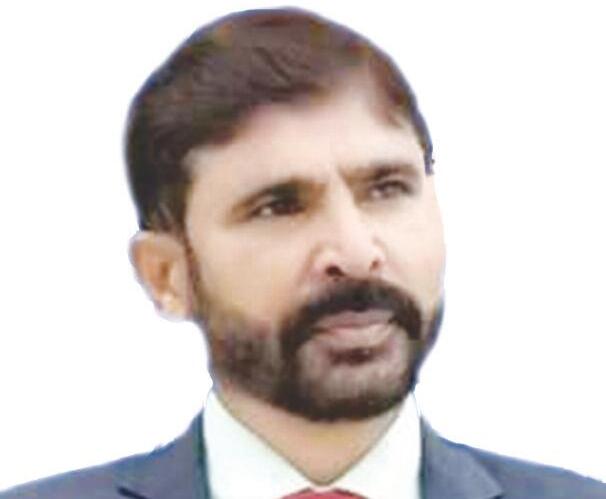
TA I WA N’S foreign policy framework is fundamentally influenced by its interactions with both China and the USA leaving it relatively unconcerned about recent developments in South Korea s nuclear policy Hypothetically, if China were to make explicit nuclear threats against Taiwan, Taipei might reassess its stance on nuclear armament However, Beijing, unlike Pyongyang has strategically refrained from employing such provocative rhetoric Historically the intricate and often contentious dynamics between Japan and South Korea have compounded the challenges in Tokyo-Seoul relations Nonetheless, the nuclearization of North Korea over the past 18 years has not catalyzed Japan’s pursuit of nuclear weapons making it improbable that South Korea s potential nuclearization would provoke such a shift today Moreover Japan s strong anti-nuclear sentiment, deeply rooted in the trauma of Hiroshima and Nagasaki, continues to serve as a significant deterrent against any nuclear ambitions The underlying drivers of South Korea’s interest in nuclearization are distinct from the circumstances in Japan and Taiwan In Seoul the debate is motivated by the pressing nu-
clear threat posed by North Korea a scenario that neither Tokyo nor Taipei currently faces Another pertinent concern associated with nuclear proliferation is safety New nuclear states are often scrutinized for their potential mismanagement of nuclear arsenals or the risk of these weapons being diverted to unauthorized entities While such apprehensions are legitimate they appear less applicable in South Korea s context The nation s robust democratic institutions as evidenced by the parliament s rejection of the president s unexpected martial law declaration and the subsequent public backlash, underline the strength of its civilian oversight and governance Furthermore South Korea’s extensive experience in managing a civilian nuclear power industry for decades instills confidence in its capacity to safely handle nuclear materials and ensure stringent command and control over its arsenal Critics, particularly among South Korean progressives, argue that nuclearization could exacerbate North Korea’s nuclear and missile programmes while undermining prospects for peace on the Korean Peninsula However this perspective appears increasingly outdated For decades, Pyongyang has leveraged Seoul s nuclear restraint to advance its own arsenal, with minimal connection between North Korea’s nuclear decisions and South Korea’s actions North Korean leadership has unequivocally indicated its intent to retain its nuclear weapons, irrespective of external factors Paradoxically, the threat of South Korea s nuclearization may serve as a catalyst for negotiations with Pyongyang, in contrast to the ineffectiveness of continued restraint Despite these arguments South Korean nuclearization is not devoid of risks If Seoul were to advance its nuclear programme Pyongyang might resort to preemptive measures, such as missile strikes targeting South
Korean nuclear facilities potentially triggering the very conflict North Korea seeks to avoid However South Korea is likely to adopt a strategic approach ensuring that its nuclear infrastructure is well-defended and dispersed, rendering a successful preemptive strike by North Korea highly improbable Moreover the repercussions of such an aggressive action by Pyongyang would be catastrophic galvanizing global opposition and diminishing any strategic gains North Korea might seek Beyond North Korea, potential responses from China and Russia merit consideration Both Beijing and Moscow have historically demonstrated limited commitment to curbing North Korea’s nuclear ambitions In recent years Russia s alignment with North Korea has grown stronger potentially complicating South Korea s nuclearization trajectory
While Moscow might employ tactics such as cyberattacks or increased support for Pyongyang its economic leverage over Seoul remains minimal particularly following South Korea s sanctions against Russia in response to the Ukraine conflict
Similarly, China, despite its significant economic ties with South Korea, has contributed to the security dilemma by refraining
from taking decisive action against North Korea s nuclear advancements While Beijing might resort to economic sanctions in response to South Korea s nuclearization Seoul s efforts to diversify its economic partnerships, including a shift towards the USA as a primary trade partner, have mitigated its vulnerability to Chinese pressure Strategically South Korean nuclearization offers potential benefits for the USA despite initial apprehensions A self-reliant South Korean nuclear deterrent could alleviate the burden on Washington to provide direct nuclear coverage, reducing the risk of the US homeland being drawn into a potential conflict with North Korea or China Moreover a nuclear-armed South Korea could serve
Ultimately, South KoreaÊs pursuit of nuclear weapons reflects a broader shift in regional security dynamics and the limitations of existing nonproliferation frameworks in addressing asymmetric threats. By achieving a limited yet survivable nuclear arsenal, Seoul could restore interKorean nuclear parity, enhance its strategic independence, and contribute to the broader stability of East Asia.
A l - A q s a F l o o d ’ o n
r e v e r s e m i g r a t i o n
The war ’s financial toll reached 11 billion USD
The rate of permanent emigration has surged by 285% following the operation on O c tober 7, 2023
Countries like Germany, Por tugal, and Cyprus have become safe havens for emigrants
Most of the migrants are young, with 48% aged bet ween 20 and 45, while 27% are under 18
In 2024 alone, 82,700 Israelis emigrated, while only 23,800 returned

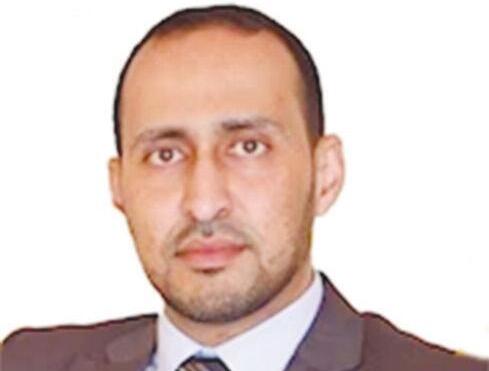
TH E Al-Aqsa Flood operation cast a long shadow over Israel’s internal reality, affecting all aspects of life political, economic, and social Despite more than a year passing Israel has failed to halt the internal hemorrhaging of talent a phenomenon that has worsened due to wars on two fronts: with Hamas in Gaza and Hezbollah in southern Lebanon
Before the conflict ceased, the fallout was more bitter than the war itself Additionally, the war ’s financial toll reached 11 billion USD deepening political and social divisions Meanwhile Jewish settlers live in a state of frustration struggling to cope with the continuing negative repercussions of the war
The phenomenon of reverse migration in Israel, an old but renewed issue, has resurfaced as one of the primary and most significant consequences of the AlAqsa Flood The rate of permanent emigration has surged by 285% following the operation on October 7 2023 according to Yedioth Ahronoth citing Israel s Central Bureau of Statistics Most of these emigrants are highly educated individuals skilled in vital sectors such as technology, medicine, business, economics, and academia The statistics reveal that most of the migrants are young, with 48% aged between 20 and 45 while 27% are under 18 The report also showed that the five cities with the highest emigration rates were in order: Tel Aviv Haifa Netanya Jerusalem and Bat Yam
According to recent statistics in Israel, countries like Germany, Portugal, and Cyprus have become safe havens for emigrants seeking stability, security, and a better future Global companies have played a key role in transferring their employees to branches in more stable countries The impact of this migration is being keenly felt in Israel as the loss of
and
alone, 82,700 Israelis emigrated, while only 23,800 returned The report highlighted that the number of emigrants was significantly higher than the number of returnees with a net negative migration of 58 900 Israel’s population as of now stands at 10 03 million with 7 7 million Jews (76 9%) 2 1 million Arabs (21%) and 216 000 foreigners (2 1%)
These statistics make it clear that reverse migration is on the rise, pointing to an undeniable truth: Israeli settlers are facing an uncertain future The concept of survival has become a thing of the past, undermining the very foundation of Israel’s existence as a state in Palestine which was supposed to offer security stability and prosperity
Over the past year Israel has lost its strategic project of being a unifying state for Jews worldwide As reported by the Jerusalem Post, the surge in reverse migration has been accompanied by the outflow of money academic credentials and technical skills factors that will negatively impact Israel’s future
Israel is in a state of continuous depletion a crisis reflected in several painful details For the first time Maariv revealed that one of the primary reasons Israel accepted a ceasefire agreement with Hezbollah in November was the unprecedented human losses and military setbacks Netanyahu admitted that the need to replenish military stockpiles was a major factor in agreeing to the ceasefire This admission is a clear sign that Israel lost both human and military resources crucial elements for any future conflict thereby diminishing Israel s once-vaunted image of invincibility
The political and strategic loss that Netanyahu now faces is undeniable Despite promoting tactical military successes he has failed to reap the full rewards of the war especially due to the strikes by the Yemeni armed forces particularly the ballistic missiles that ruined any potential gains
The losses in both human and military components are just the beginning for Israel, as it is on the brink of substantial internal transformations especially politically and socially The Al-Aqsa Flood will leave lasting effects and Israel will never return to the state it was in before October 7 Public opinion polls continue to show a future marked by uncertainty, continuous threats, security deterioration, and a collapsing economy, all of which further fuel the ongoing exodus
The war on Gaza and Lebanon has revealed new truths about Israel’s internal and security situation most notably its vulnerability This has given rise to a new reality marked by reverse migration instability and the loss of hope for the future forces that will compel Israel to adopt new strategies to address the collapse it faces
(Al Mayadeen – Translated and prepared by The Palestine Chronicle) I s r a e l b l e e d s : T h e i m p a c t o f
The Anti-Corruption Commission (ACC) of Bangladesh is now investigating an alleged embezzlement of 3 9 billion pounds linked to the nuclear power plant projec t
The King’s Cross flat, wor th a breez y 700,000 pounds, was repor tedly a gift from Abdul Motalif, a proper t y developer with ties to Bangladesh’s former ruling par t y, the Awami League
When it comes to political scandals, always follow the money and, apparently, the Land Registr y records

F Netflix were to produce a political thriller titled The Minister and Her Many Mansions it would likely trend globally within hours Tulip Siddiq, UK s anti-corruption minister (yes, let s all savour that job title for a moment), has become the centre of a political scandal so rich in plot twists, property deeds, and geopolitical side characters that even House of Cards feels like an Ikea instruction manual in comparison
Let s start with the flats Pricey properties dotting London s posh neighbourhoods have been gifted or linked to Siddiq through a delightful labyrinth of family gratitude, political alliances, and good old-fashioned South Asian familial loyalty Imagine Monopoly, but instead of “Go to Jail ” the cards read: “Go to Parliamentary Ethics Committee Do not pass Go do not collect public trust ” The King s Cross flat worth a breezy 700 000 pounds was reportedly a gift from Abdul Motalif a property developer with ties to Bangladesh s former ruling party, the Awami League The justification? Gratitude for the financial support given by Siddiq’s parents during his “challenging time ” Because, as we all know, the standard repayment for a good loan in South Asian families isn’t a box of mishti but prime London real estate
And then there s the nuclear subplot In 2013 Siddiq was photographed alongside Sheikh Hasina her aunt and former Bangladesh prime minister, and Russian President Vladimir Putin at the signing ceremony of a $12 65 billion nuclear power plant deal between Bangladesh and Russia Critics suggest


Turkish-backed factions in northern Syria resumed their fight with the SDF at the same time as Islamist-led rebels were launching an offensive on November 27 that overthrew Syrian president Bashar al-Assad just 11 days later The pro-Ankara groups succeeded in capturing Kurdish-held Manbij and Tal Ri-
erful, mobile, and well-equipped entity capable of ensuring national security, stability, and the inviolability of our borders The new edition of the Constitution of the Republic of Uzbekistan adopted through a nationwide referendum has created vast opportunities to continue extensive reforms aimed at enhancing the combat readiness of troops, transforming the structure of our armed forces, and further strengthening the country’s defense capabilities
Amid the rapidly changing global militarypolitical landscape and the diverse manifestations of threats preserving the peace and harmony reigning in our society our most valuable asset, is of paramount importance
honor, continue the traditions of our great ancestors They steadfastly work to realize the aspirations of our people safeguard the independence of Uzbekistan and protect the peace of our nation GUARANTEE OF THE NATION’S DEVELOPMENT
Through the initiatives and directives of the Commander-in-Chief of the Armed Forces the broad-ranging reforms implemented in recent years have fundamentally transformed the structure and capability of our national army Today Uzbekistan s Armed Forces are a pow-
The Ministry of Defense leadership and the commands of military districts, analyzing ongoing armed conflicts worldwide are determining optimal approaches to troop preparation They are implementing specific measures to organize effective operational command, enhance the moral and psychological readiness of military personnel, and boost their combat spirit
The “Uzbekistan–2030” strategy, adopted by a Presidential Decree of Shavkat Mirziyoyev prioritizes further strengthening the country s de-
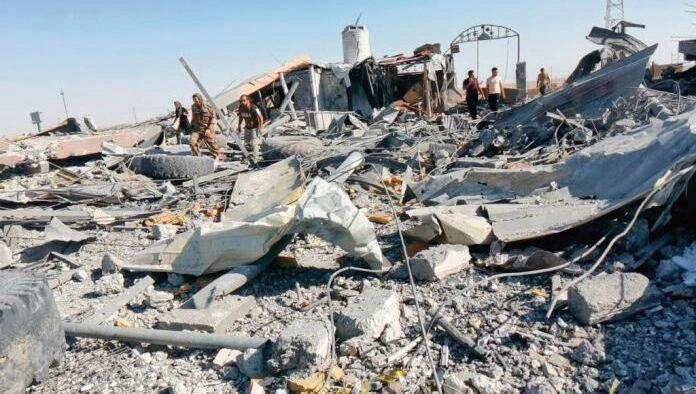
fense potential and developing the Armed Forces In this context, fundamental work is being undertaken to devise new methods and formats for preparing troops for combat in the most challenging conditions ensuring effectiveness within short timeframes COMBAT TRAINING AT A NEW
Based on the best practices of developed countries’ armies and analyses of modern armed conflicts, over the past three years, more than 35 conceptual directive documents have been developed These documents are being used to further improve the professional training of military personnel and implement new tactical movements within the troops
To elevate troop readiness to a new level, all combat training programs have transitioned to a modular system designed for two years This system focuses on creating coherence in the movement of combat groups platoons and battalions for various types of battles Specifically, the combat and special training hours for permanent-readiness brigades have increased by over

China to build all-weather China-Africa community with shared future in new era: Wang
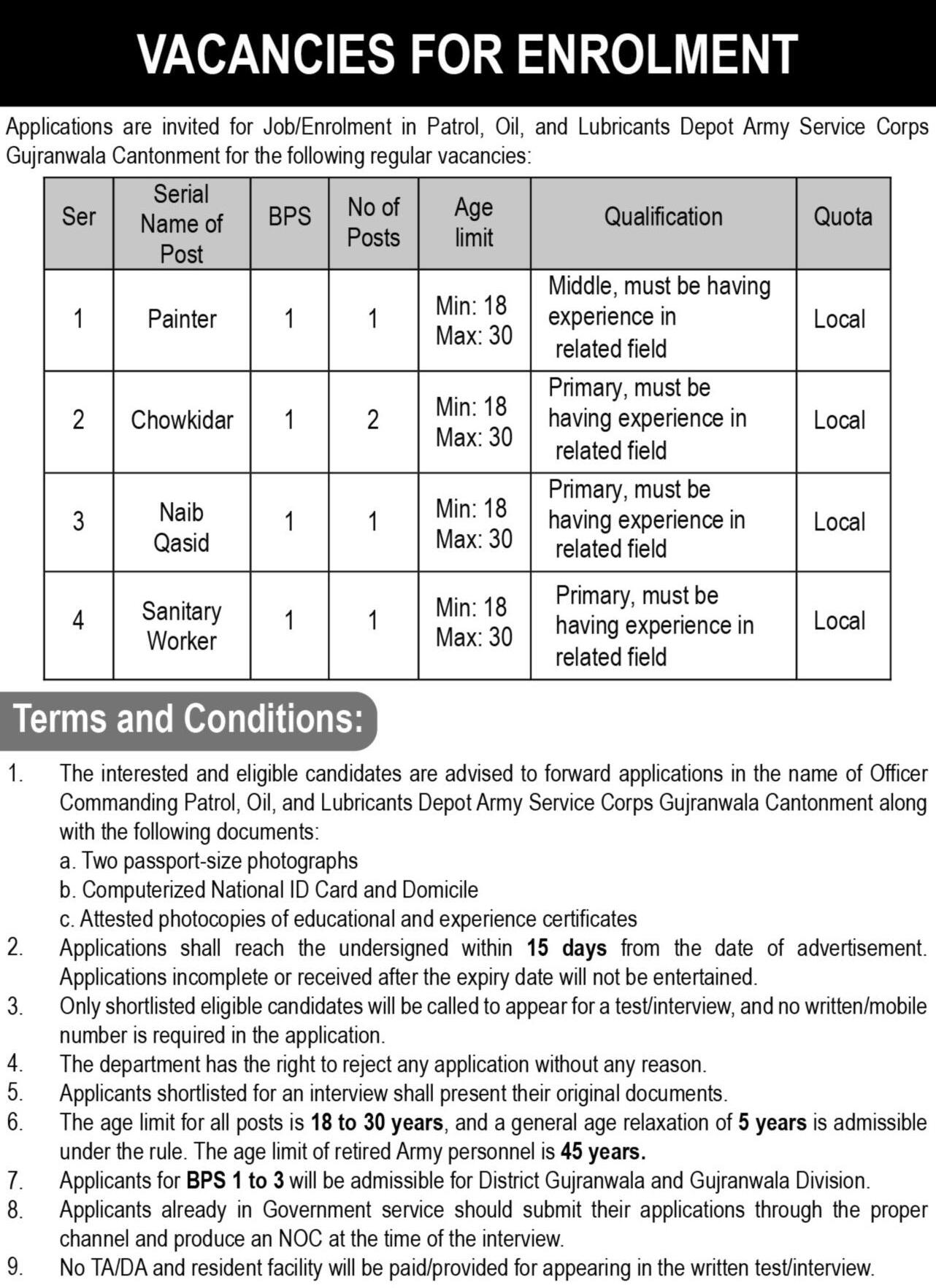
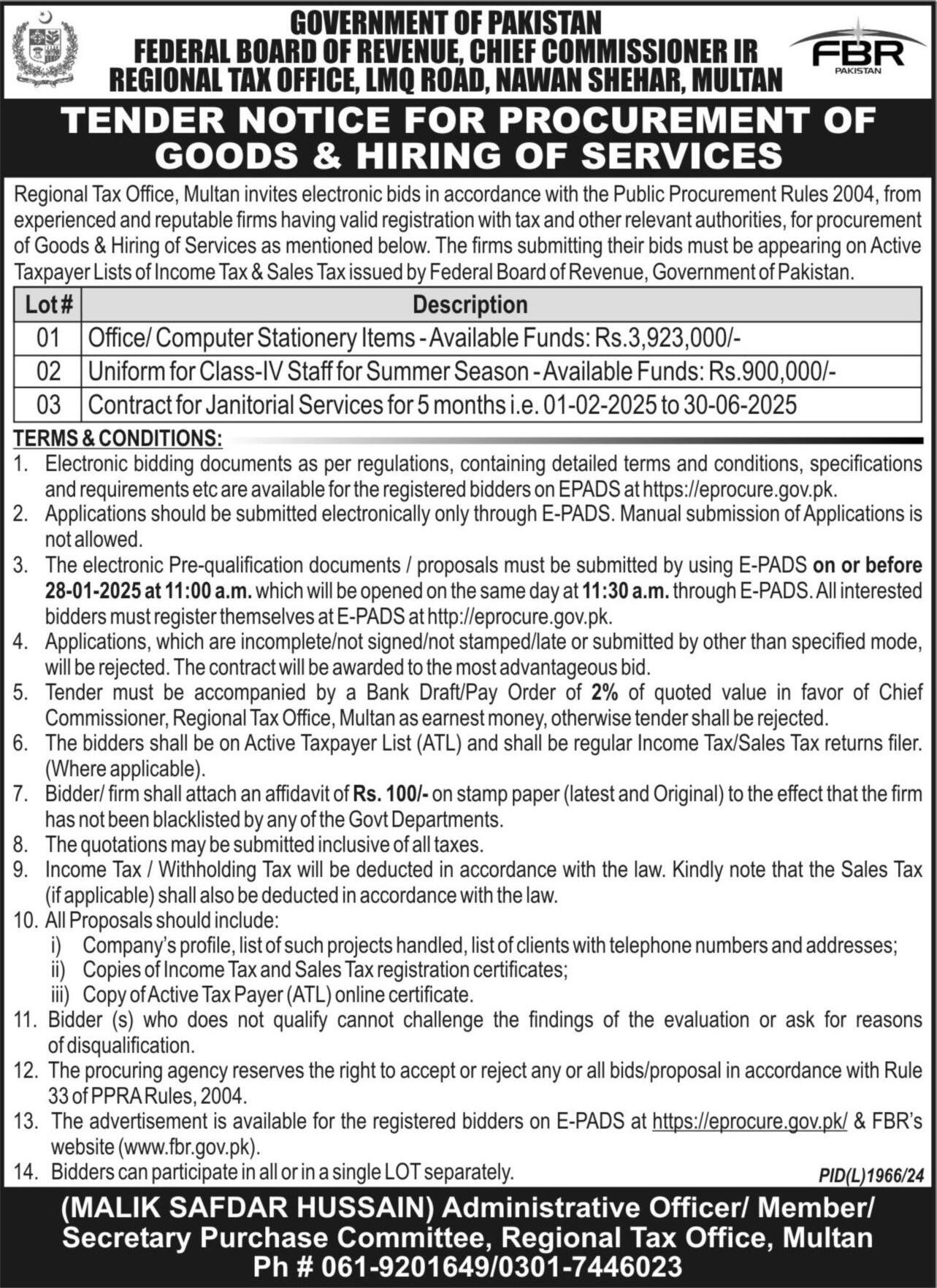


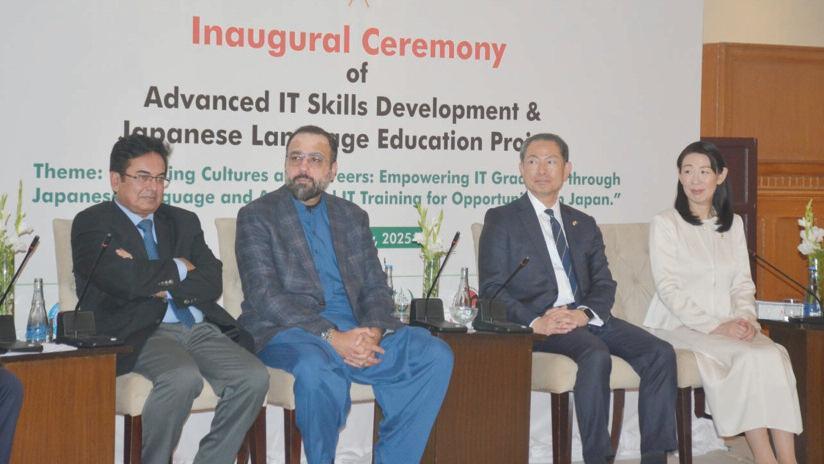

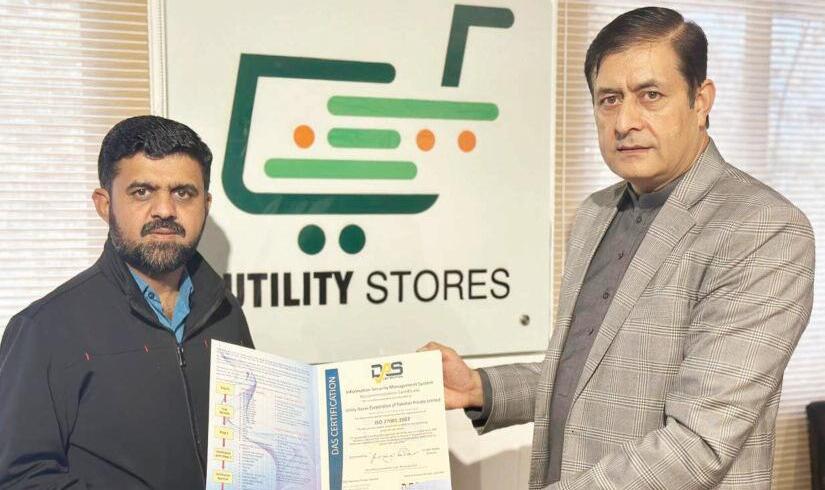
KARACHI S TA F F R E P O R T
Governor Sindh Kamran Khan Tessori expressed concern over the ethnic cleansing of Palestinians in Gaza, urging the international community to take notice of Israeli brutality Governor Sindh further stated that Pakistan’s political, moral, and diplomatic support for Palestine would continue These remarks were made during a one-on-one meeting with Palestinian Ambassador Zuhair M H Darzaid at the Palestinian Embassy in Islamabad
Governor Sindh Kamran Khan Tessori emphasized that a two-state solution had become absolutely essential warning that any further delay could turn the Middle East into a heap of fire He added, The hearts of the Pakistani nation beat for Palestine " The Palestinian Ambassador noted that the Muslim Ummah holds high expectations from Pakistan
Governor Sindh Kamran Khan Tessori hosted the victorious national team of the Blind T20 World Cup at the Governor House, congratulating them on their historic achievement On this occasion Governor Sindh Kamran Khan Tes-
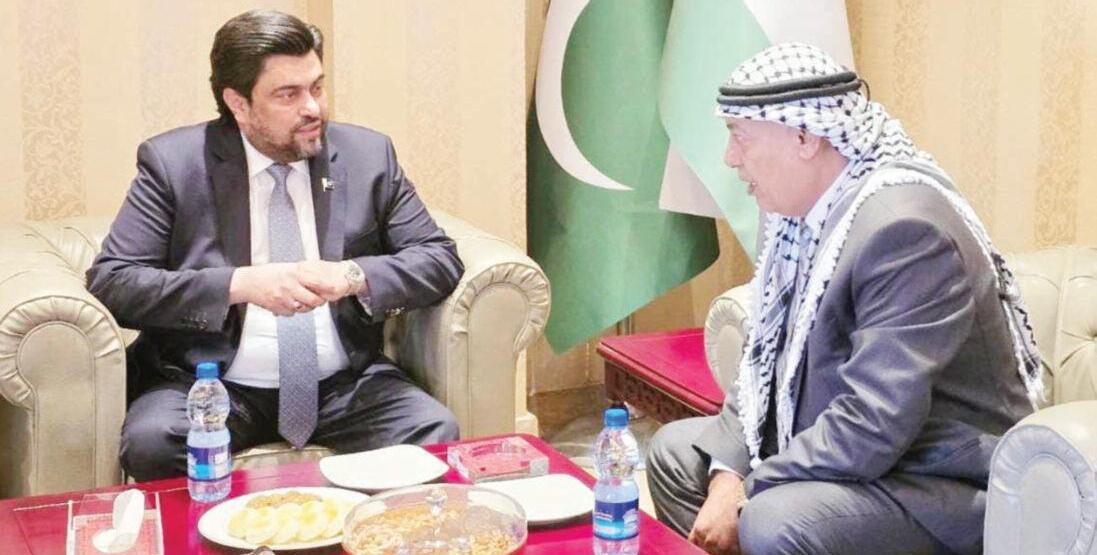
sori announced a cash reward of PKR 500,000 for the team and expressed his commitment to recommending further rewards from the Sindh government He praised the exceptional performance of the players and team management stating that the Blind T20 World Cup victory is a significant honor for Pakistan The blind cricket team expressed gratitude, noting that Governor Sindh Kamran Khan Tessori was the first official to acknowledge their success on a governmental level While speaking to the media, Governor Sindh Kamran Khan Tessori expressed deep concern over the increasing accidents caused by tankers and dumpers on Karachi s
Kamran Khan Tessori also
that drivers from other provinces
not be allowed to operate tankers or dumpers in Karachi without obtaining local licenses He appealed to law enforcement agencies for full cooperation in enforcing these measures
K A R A C H I: IBA Karachi hosted a thought-provoking Public Lecture “Savarkar and the Making of Hindutva” by the Janaki Bakhle Professor of History from the University of California Berkeley at the City Campus Dr S Akbar Zaidi Executive Director IBA Karachi commenced the lecture by introducing Professor Bakhle s acclaimed book Savarkar and the Making of Hindutva Dr Zaidi highlighted the book s significance in understanding the complex historical and ideological foundations of Hindutva, emphasizing its scholarly depth and relevance to contemporary discourse The discussion explored his revolutionary activities, his contributions to political thought, and the debates surrounding his vision and influence In her lecture, Professor Bakhle contended that Savarkar's ideology, often labeled as 'Hindu fundamentalism,' was profoundly influenced by the historical circumstances of its time and did not develop in isolation Professor Bakhle’s talk explored Savarkar’s strong anti-Muslim sentiments emphasizing that these views were shaped mainly by regional historical contexts rather than direct interactions with large Muslim communities She compared his ideology to the broader Indian nationalist discourse highlighting his position on the far-right end of the nationalist spectrum While Savarkar began as a revolutionary and anti-colonial activist in the early 1900s, his early writings were crafted with fellow revolutionaries in mind, reflecting his focus on advancing their shared objectives
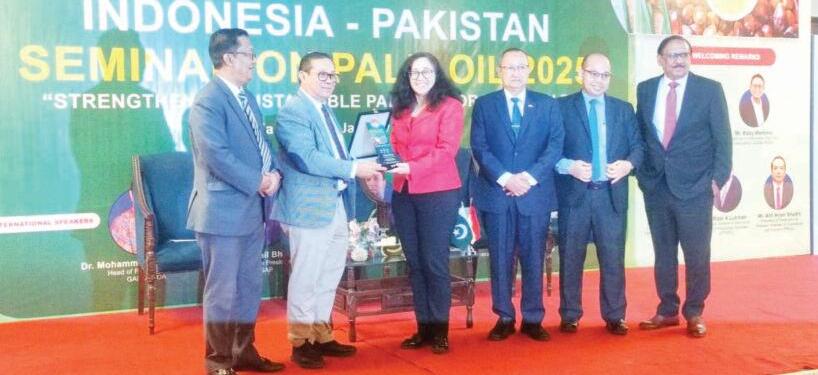
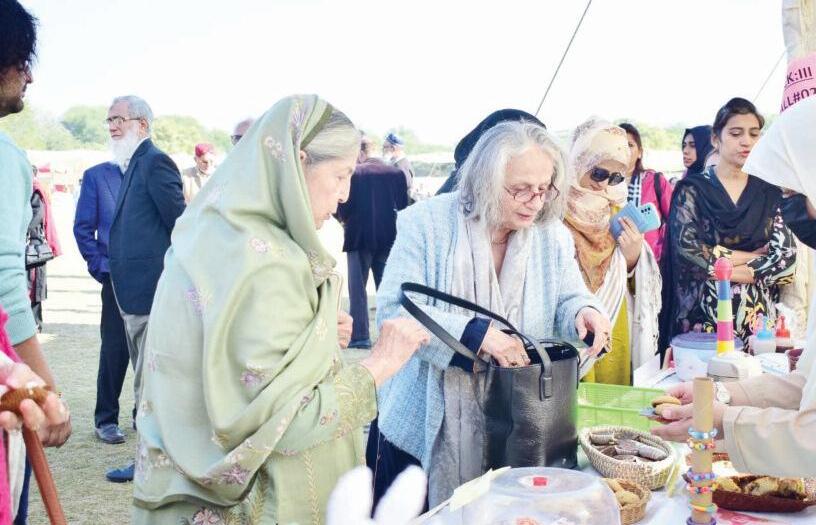
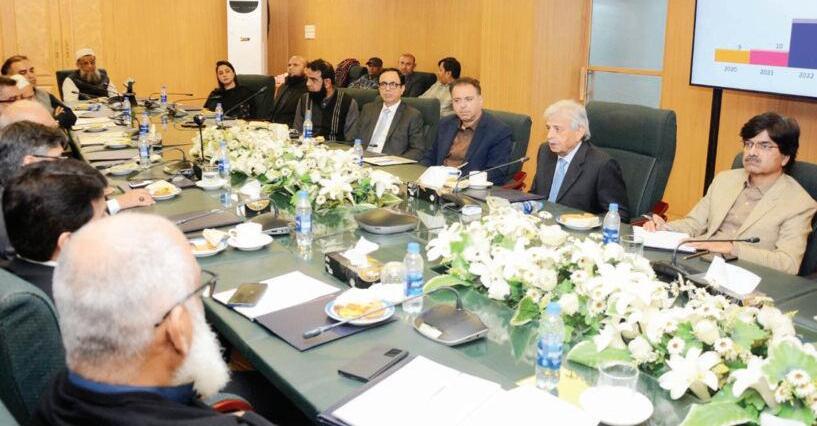


Awam Pakistan Party, the total number of registered political parties in Pakistan now stands at 168 Earlier several political figures have joined the Awam Pakistan party in Rawalpindi According to sources a prominent landowner and head of the influential Chaudhary family Chaudhary Inam Zafar,
sort Sources further said the shift has changed Rawalpindi s political landscape Additionally, ten female leaders and councillors, previously affiliated with PML-N, Pakistan Peoples Party (PPP), and Pakistan Tehreek-e-Insaf (PTI), have also announced their allegiance to the Awam Pakistan party The women leaders include Zahida Parveen and councillors Saeeda Begum Maira Begum Rizwana Bibi and Arshi Begum The political switch follows an earlier defection by Chaudhary Sarfraz Afzal another key figure from the Chaudhary family, to the Awam Pakistan party These leaders revealed plans to organise a city convention in January, where several other significant PML-N personalities are expected to join the party
ISLAMABAD S TA F F
O R T Pakistan Tehreek-e-Insaf (PTI) founder Imran Khan on Friday declared that no one is willing to listen to their reservations and clamour for justice, saying his party has been left with no option but to take their cases to the international stage Speaking to the media outside Adiala Jail Imran Khan s sister Aleema Khan revealed that he had expressed that they had approached both the Islamabad High Court (IHC) and the Supreme Court (SC), but to no avail “We have no other option left We will take our cases to the international level
Aleema Khan explained that they were prevented from entering the jail and had to walk to the internal gate She stated that previously the whole family had access to the jailed leader but now only limited access was being granted She added that this situation was tantamount to torture, as even Imran Khan’s personal doctor was being denied access Imran Khan’s sister further commented that after watching the press conference of Rana Sanaullah, Imran Khan smiled and enjoyed it We are trying to convey every message of Imran Khan to the nation We will not let any message be missed ” She mentioned that two months ago they had been threat-
ened with the release of AI-generated videos, but Imran Khan remained confident, saying that they had the support of the entire nation and all of Pakistan s social media Aleema Khan clarified that despite being perceived as being involved in politics, they were not politically engaged She assured that they were dedicated to Imran Khan’s release and his leadership whether he held an official position or not She emphasised that Imran Khan was the voice and thought of the people of Pakistan During her conversation with journalists, Aleema Khan added, “All decisions will be made from Adiala Jail and they are
‘A
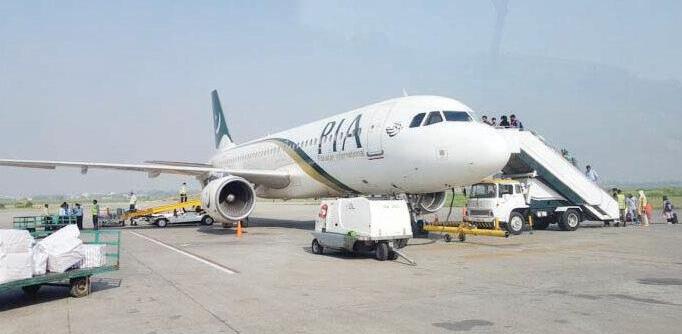
ISLAMABAD STAFF REPORT Pakistan has invited applications for five thousand vacant seats for Hajj